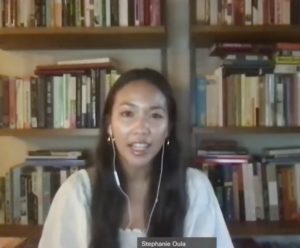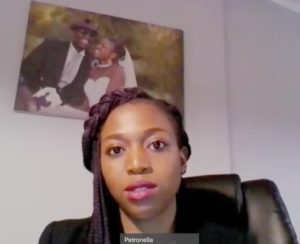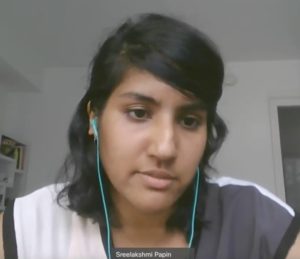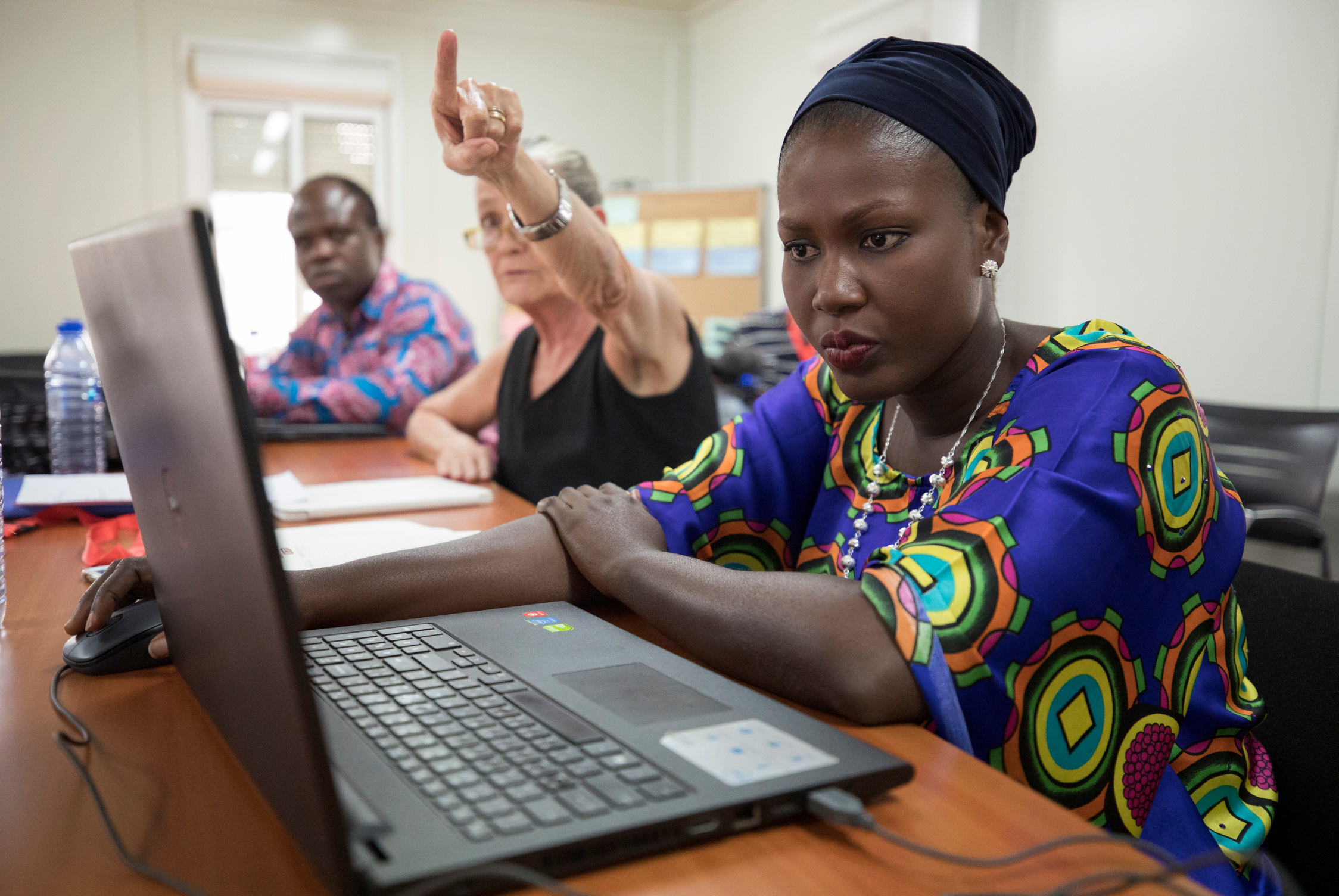While the COVID-19 pandemic is still making news headlines every day, data and research results are emerging about the negative effects of over 100 days of closures of schools, businesses and public services on women entrepreneurs in most parts of the world.
In the fourth edition of the webinar series WE Talks, organized by We-Fi in collaboration with Data 2X, participants explored new insights into the effect of COVID-19 on women-led SMEs in developing economies and how gender-related risks can be better assessed and addressed in support programs and policies. In case you missed this WE Talks, please see the key takeaways below. You can also watch the full recorded session here:
When We-Fi began with its webinar series, there were several assumptions about the vulnerability of women-led SMEs facing the crisis with disproportionate effects for two critical reasons: they tend to face underlying issues that make it harder to run and scale successfully (including household responsibilities and confronted with more social-economic and financial vulnerabilities), and they are more likely to be concentrated in the sectors (services and trade) most immediately affected by the pandemic. These assumptions were also based on previous pandemics and crises which showed that extreme situations are likely to disproportionately impact women and girls. Research by the World Bank’s Enterprise Survey team, commissioned by We-Fi, shows that the 2008 financial crisis impacted female-led firms in emerging markets more than male-led firms. Female-managed enterprises were more likely to exit the market due to a drop in demand.
The latest WE Talks session was moderated by Wendy Teleki, Head of the We-Fi Secretariat and Stephanie Oula, Data2X Partnership Manager of Women’s Financial Inclusion Data. Teleki emphasized We-Fi’s intention to continue to research the impact of the coronavirus crisis on women-led businesses, trying to draw attention to what can be done to save them from devastation. Data2X’s Oula started her remarks by framing the importance of applying an intersectional lens to gender data collection – data disaggregated by sex, as well as ethnicity, race, location and more – so women entrepreneurship is adequately supported at all stages of the crisis and recovery.
Partnering with Open Data Watch, Data2X has launched an ongoing review of available global data to track the primary and secondary gender effects of COVID-19. They are working with a set of 28 basic indicators that span primary health effects, economic wellbeing, access to safety nets, human capital, and other women’s health issues, and looked at the availability and timeliness of data across these indicators.
The availability of regular global-level gender data on women entrepreneurs has been historically mixed, Oula explained.
 One barrier to data on women-owned enterprises in many countries and with financial service providers is the difficulty of defining and tagging women-owned enterprises. And that history of poor gender data is playing out in real-time today, with stark consequences. If governments and financial service providers cannot identify or have not tracked women-owned enterprises, this can negatively impact how governments design support programs for the most affected women entrepreneurs, said Oula.
One barrier to data on women-owned enterprises in many countries and with financial service providers is the difficulty of defining and tagging women-owned enterprises. And that history of poor gender data is playing out in real-time today, with stark consequences. If governments and financial service providers cannot identify or have not tracked women-owned enterprises, this can negatively impact how governments design support programs for the most affected women entrepreneurs, said Oula.
At the same time, because of the new commitments and responses to the needs of women entrepreneurs—many by the private sector—there is an opportunity right now to expand gender data collection on women entrepreneurs, with the types of rapid data collection efforts, as well as by mandating gender data collection in response funding and policy monitoring, noted the Data2X speaker.
 Petronella Tizora, Gender Specialist with FinMark Trust, a non-profit organization focusing on financial inclusion of women and underserved communities in developing economies, shared its recent survey about the effects of the COVID-pandemic in six African Countries (Kenya, Nigeria, Rwanda, South Africa, Uganda, Zambia). The organization’s Covid- tracker (www.covid19tracker.africa) supported by Bill and Melinda Gates Foundation, used different types of rapid data collection, including a consumer survey through telephone interviews to track the impact on livelihoods after lockdown measures started in urban areas, as well as some rural areas. With an average sample size per country of 1000 respondents, Finmark’s detailed insights on women business owners were obtained by analyzing the main source of income and disaggregating the data by sex and age as well as geographical regions. The indicators used varied from health, financials, food security, safety and demographics (including rural/urban) for each of the analyzed countries.
Petronella Tizora, Gender Specialist with FinMark Trust, a non-profit organization focusing on financial inclusion of women and underserved communities in developing economies, shared its recent survey about the effects of the COVID-pandemic in six African Countries (Kenya, Nigeria, Rwanda, South Africa, Uganda, Zambia). The organization’s Covid- tracker (www.covid19tracker.africa) supported by Bill and Melinda Gates Foundation, used different types of rapid data collection, including a consumer survey through telephone interviews to track the impact on livelihoods after lockdown measures started in urban areas, as well as some rural areas. With an average sample size per country of 1000 respondents, Finmark’s detailed insights on women business owners were obtained by analyzing the main source of income and disaggregating the data by sex and age as well as geographical regions. The indicators used varied from health, financials, food security, safety and demographics (including rural/urban) for each of the analyzed countries.
Looking at women businesses, Tizora concluded that their ability to generate income is disproportionately affected versus their male counterparts, in both informal retail markets as well as services sector (e.g. hairdressing, catering and domestic services). Uganda for example shows that 61% of women-led small businesses is failing to have income, compared to 22% of men-led business. Rwanda and South Africa show similar trends. Looking forward, even with the easing of lockdown measures, these women entrepreneurs will face increased costs to keep their business because the new strict conditions required (i.e. sanitization of facilities). With consumers being more careful with their spending because they are currently struggling to make ends meet, businesses will continue to be income-challenged, emphasized the FinMark Trust speaker.
Uganda shows that 61% of women-led small businesses is failing to have income, compared to 22% of men-led business.
Although not a focus of the “covid19tracker.africa”, it was reported that imports were affected very early on, for example second-hand clothing imports is a sector that struggled to get products in the early stages in March due to Covid-related closures in Asia. Africa is now starting to see trade issues at certain ports as port-processing employees are starting to be affected by the virus.
Apart from less demand, and trade and transportation restrictions, women are working less time in their businesses than men because of their care work. “Balancing between business and family responsibilities is quite an issue for women”, said Tizora, impacting even food security in households.
There are also gender-based income gaps predating COVID-19. Tizora indicated that as lockdowns have lifted in some countries, women-owned businesses were slower to return to operations than male-owned businesses, particularly in Uganda and Rwanda.
In reflecting how gender data insights should be used by decision-makers in the public and private sector, Tizora mentioned that COVID-19 government stimulus packages to SMEs with tax breaks and policy tools are usually tied to the formal sector business. Overall, in Africa there are fewer government support programs than in OECD countries and there is the lag between program announcement and receipt of support. Women and other vulnerable groups struggle to qualify for such announced support.
“Moving forward there is definitely a need for databases to include informal markets (for instance, in local municipalities, associations, trading flows) to feed into a multi stakeholder approach by governments, associations, NGOs, and private institutions. They can then tackle some of these specific issues and redesign their programs and interventions with a gender lens. Non-financial support in the form of technical assistance, such as advice to women on how to make decisions and adjustments in their business models is also needed now and post-pandemic”, said Tizora.
 Speaker Sreelakshmi Papineni, economist with the World Bank’s Africa Gender Innovation Lab, presented a global research focusing on identifying and addressing gender-based constraints. In a collaboration between Facebook, OECD and the World Bank, data from 26,000 business owners and managers collected from May 28th-31st in 50 countries was analyzed. It is the first analysis out of a series of six Facebook Future of Business COVID-19 Surveys.
Speaker Sreelakshmi Papineni, economist with the World Bank’s Africa Gender Innovation Lab, presented a global research focusing on identifying and addressing gender-based constraints. In a collaboration between Facebook, OECD and the World Bank, data from 26,000 business owners and managers collected from May 28th-31st in 50 countries was analyzed. It is the first analysis out of a series of six Facebook Future of Business COVID-19 Surveys.
Papineni started by highlighting the gender gap in business closures by region, with women led businesses closing shop at a higher rate in every region around the globe.
“Globally, female-owned businesses were 5.9 percentage points more likely to close their business than male-owned business, when controlling for region”, she said. Three segments of data were presented: breakdown by sector, time of domestic tasks and financial loans.
Conclusions by sector are similar to the FinMark’s survey results: women are predominantly present in consumer-facing industries faced with a high number of closures; hotels, cafes and, education and child-care services, as well as wellness, personal grooming, sports and fitness services.
Globally, female-owned businesses were 5.9 percentage points more likely to close their business than male-owned business
Figures on time spent on domestic tasks and family care responsibilities show even a higher gender gap, with women spending more than 6 hours per day in such activities, significantly more than men. This could be the result of the extra burden that may come from staying home during a quarantine or school closures or having to take care of other family members who have fallen ill.
Outstanding loans are becoming a burden for SMEs, according to the research. About 45% of surveyed business would like a loan payment deferral. On examples of data-driven decision-making and action for women entrepreneurs, Papineni concluded “One must take the constraints that women are facing into consideration during the diagnosis process. If there is a school closure in place, if there are quarantines in place, a very quick repayment period is not really going to work”.
Resources
-
World Bank Africa Gender Innovation Lab
-
Facebook Future of Business Survey tool:
-
Policymakers working to address the economic challenges facing the Africa region can draw on the evidence from impact evaluations provided in the latest policy brief “COVID-19 Pandemic Through a Gender Lens” which shows what works for women and girls across the continent.
-
A global report on the results of the Facebook Future of Business COVID-19 wave 1 survey for small and medium businesses will be launched on Facebook Data for Good website on July 8th 2020.
In terms of policies, most businesses have similar needs, but “support for taking care of household members is the third more important thing to women and only the eighth more important to men”, commented Teleki from We-Fi. “Moving from emergency response to recovery and longer-term gender inclusion activities is essential.”
 Elizabeth Vazquez, CEO, and Co-Founder of WEConnect International presented recent survey results about the impact of COVID-19 on women-led businesses. With 590 global women-led companies surveyed in April 2020, not surprisingly, 87% responded to have been impacted negatively by COVID-19. However, some findings showed that women are pivoting and adapting their businesses to the pandemic. Some were able to optimize or refocus their business, like cutting unnecessary expenses, shifting to a digital business model, responding to local or global current needs and new opportunities, including COVID-19 related goods or services.
Elizabeth Vazquez, CEO, and Co-Founder of WEConnect International presented recent survey results about the impact of COVID-19 on women-led businesses. With 590 global women-led companies surveyed in April 2020, not surprisingly, 87% responded to have been impacted negatively by COVID-19. However, some findings showed that women are pivoting and adapting their businesses to the pandemic. Some were able to optimize or refocus their business, like cutting unnecessary expenses, shifting to a digital business model, responding to local or global current needs and new opportunities, including COVID-19 related goods or services.
68% of them wanted to increase business opportunities with other women-owned businesses
The survey also asked how the community could help these women. Responses mixed between financial and non-financial needs. “68% of them wanted to increase business opportunities with other women- owned businesses”, said Vazquez, surprised with the high figure. “The more we can all do to work together so women can support each other and share best practices, challenges and resources was the very top request”. Increased contract opportunities, loans and government tax benefits are helpful, but in the end of the day these women-led businesses need to sell their goods and services to increase their revenue, emphasized the WEConnect speaker. Increase in revenues makes it easier to obtain bank loans. More than half of respondents said they needed more networking opportunities and more access to finance, followed by training and mentorship.

